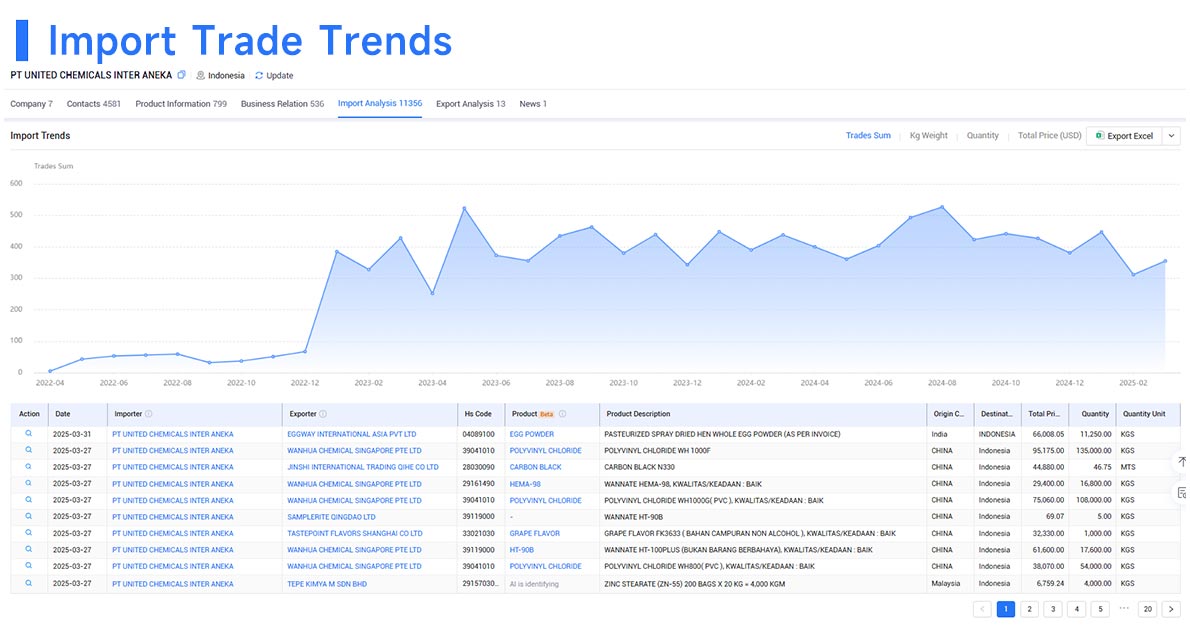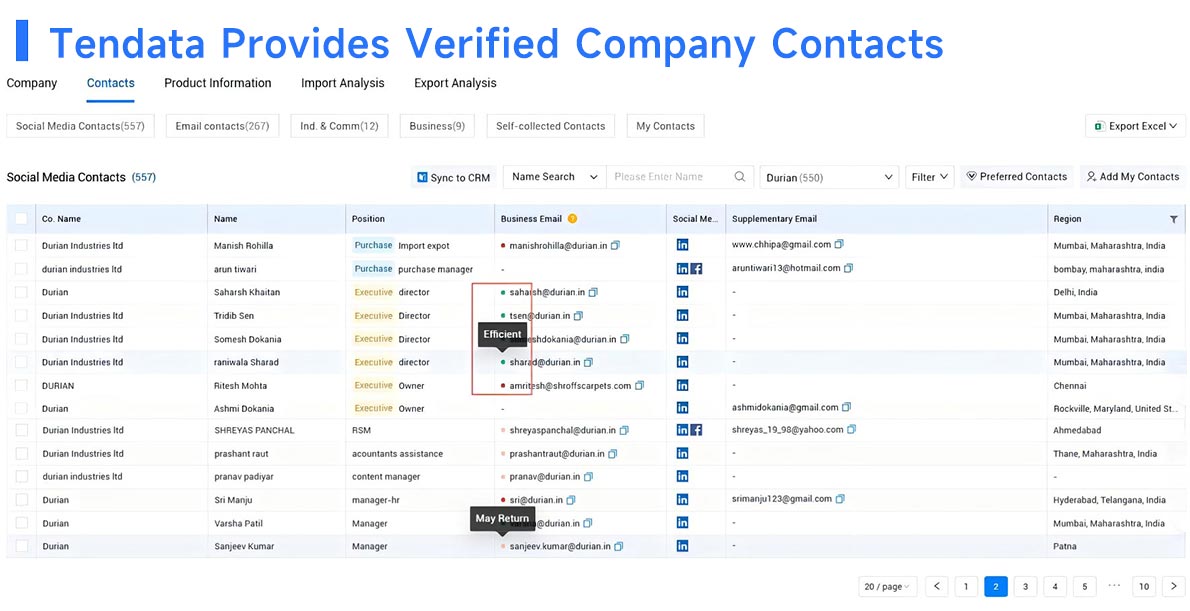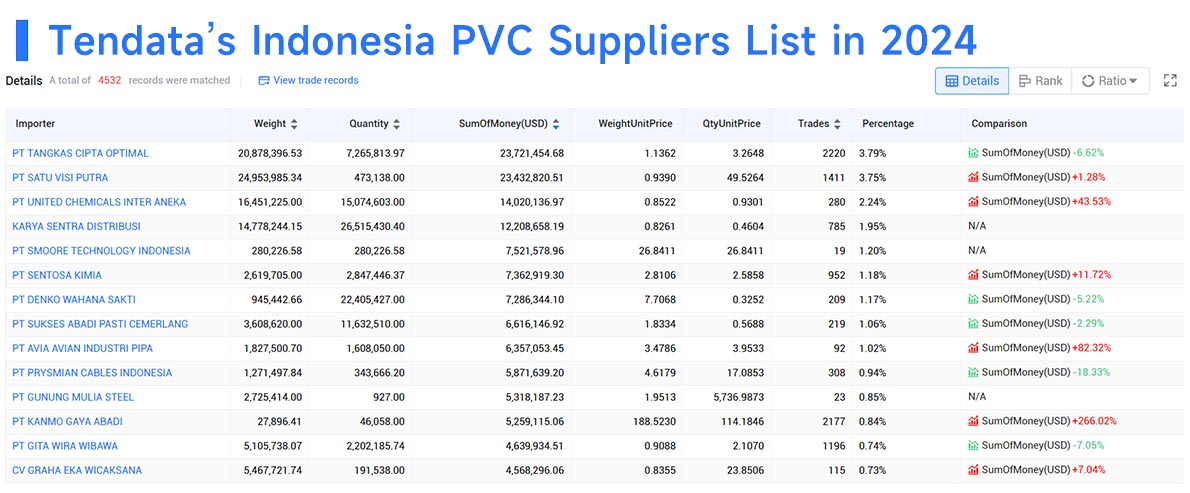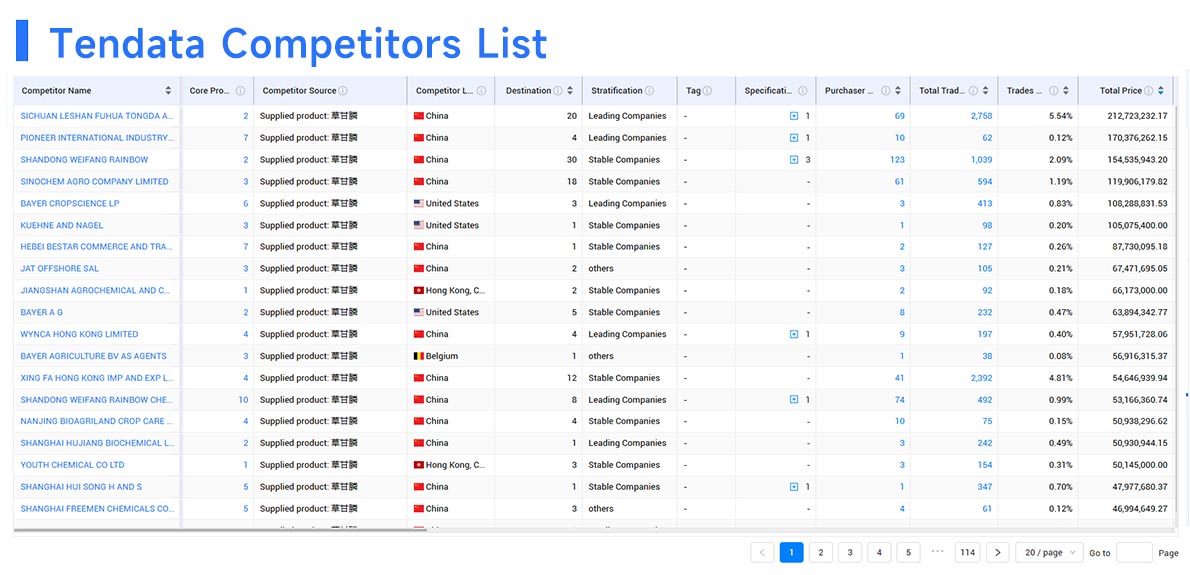 Trade Data Provider
Trade Data Provider
 2025-08-28
2025-08-28
To find global buyers isn't just about casting a wide net and hoping for the best—it's about using precise, data-driven insights to target the right buyers in the right markets. Trade data has emerged as one of the most powerful tools for expanding a B2B business internationally. By analyzing detailed trade records, businesses can identify high-potential buyers, understand market trends, and make informed decisions that accelerate growth.
The Value of Trade Data in Global B2B Commerce
At its core, trade data is a record of global commercial activity—every shipment, every trade transaction, and every import/export deal. It holds critical details about buyer behavior, product demand, and market trends. Platforms like Tendata provide access to billions of shipping records, including essential data points such as:
Import/export values and volumes
HS codes (product categories)
Country of origin and destination
Importers and exporters names
Pricing trends and unit costs
This detailed information allows you to identify not just buyers, but the right buyers—those who are already purchasing products similar to yours, in the quantities and at the price points you're targeting. With this insight, businesses can move beyond the guesswork of finding global buyers and instead use real-time, actionable data.

Pinpoint High-Value Buyers with Precision
Trade intelligence platforms offer powerful filters that allow you to sift through billions of records with ease. This means you can target high-value buyers who are actively engaged in buying the products or services you sell. For instance, you can filter data by key metrics such as:
Product categories (HS codes)
Country/region
Import volume and value
Frequency of trade
By filtering trade data in this way, businesses can pinpoint buyers with a proven history of purchasing similar products, which significantly reduces the time and effort spent on lead generation.
For example, if you manufacture electronics and want to find buyers in Germany, trade data can help you identify companies importing electronic components from your region. You can then analyze their buying habits to understand the scale of their purchases, pricing, and delivery patterns. This data doesn’t just point to a list of buyers—it reveals detailed profiles, allowing you to approach only the most promising prospects.

Spot Emerging Markets and Shifting Demand
Markets are always changing, and trade data helps businesses stay ahead of the curve by identifying emerging trends and growing demand in specific regions or industries. For example, a surge in sustainable products might be noticeable in Europe or North America, or a new market for tech accessories might open up in Southeast Asia.
By tracking this data over time, you can:
Identify new and emerging markets before they become saturated.
Adjust your product offerings based on shifts in global demand.
Stay informed about potential opportunities in less obvious, yet high-growth markets.
Consider the growth of e-commerce during the pandemic. Trade data enabled businesses in the logistics and packaging industries to track surges in imports related to online shopping—allowing them to adjust their marketing strategies and prioritize buyers in these high-demand sectors.

>>>> Find Global Buyers Right now<<<<
Monitor Competitors and Benchmark Performance
Trade data isn’t just about finding buyers—it's also about understanding the competitive landscape. By analyzing the import/export activity of your competitors, you can uncover valuable insights into:
Pricing strategies: What are your competitors charging for similar products?
Supply chains: Who are their suppliers, and where are they sourcing from?
Buyer behavior: What types of companies are purchasing from them, and in what quantities?
With platforms like Tendata, you can access detailed profiles of competitors, enabling you to track their market performance and adapt your own strategies accordingly. This insight is invaluable in maintaining a competitive edge, whether you're adjusting pricing, refining your product offerings, or identifying new opportunities based on gaps in the market.
For example, if a competitor consistently imports large volumes of a particular product at a lower price, trade data allows you to understand their competitive advantage and decide whether to match, beat, or differentiate your offerings.

Leverage Buyer Contact Information for Direct Outreach
One of the key advantages of using trade data is that it not only identifies potential buyers but also provides contact information—the key decision-makers within those companies. Whether it’s a procurement manager, supply chain director, or executive buyer, this direct access to buyer contact information is invaluable for building targeted, personalized outreach strategies.
Platforms like Tendata allow you to view LinkedIn profiles, email addresses, and other professional contact details. This empowers you to approach buyers with tailored messaging, focusing on their specific needs and interests. Direct outreach becomes far more effective when you have data-backed insights into the buyer’s previous purchases, industry preferences, and expected buying cycles.
Stay Agile in a Changing Trade Landscape
The world of international trade is constantly evolving, with regulatory changes, geopolitical shifts, and market disruptions influencing buyer behavior. Trade data allows businesses to stay agile by monitoring and adapting to these changes in real time.
For example, if a country imposes new tariffs or import restrictions on certain products, trade data can help you track these changes and identify new opportunities in countries that are not affected by these regulations. It also helps you understand shifts in demand based on supply chain disruptions or changing consumer preferences in specific regions.
Having this kind of real-time insight means you can make proactive decisions, whether it's adjusting your pricing to account for new import duties, pivoting to new markets, or identifying buyers whose supply chains might be disrupted by external factors.
>>>> Find Global Buyers Right Now <<<<
The Future of B2B Growth Is Data-Driven
In the rapidly evolving world of global trade, trade data is more than just a tool—it’s a strategic asset that empowers B2B businesses to find the right buyers, understand market dynamics, and stay ahead of the competition. By utilizing platforms like Tendata, companies can unlock a wealth of insights that allow them to engage with global buyers in a targeted, precise, and efficient manner.
Category
Leave Message for Demo Request or Questions


 T-info
T-info T-discovery
T-discovery

 My
Tendata
My
Tendata Market Analysis
Market Analysis Customer
Development
Customer
Development Competitor
Monitoring
Competitor
Monitoring Customer Relationship
Customer Relationship





































































































































